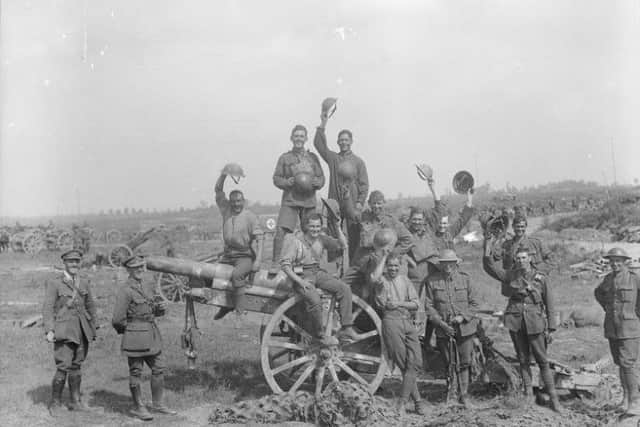What was The Battle of Amiens and why was it so important in bringing about the end of the First World War?
and live on Freeview channel 276
By Charlotte Czyzyk, Imperial War Museums
What happened before the battle?
However, the strain of holding onto these positions with exhausted troops and supplies meant that there was no decisive German breakthrough.


The Allies prepared to launch their own attack in August 1918, having learned crucial lessons from previous bloody battles at Ypres and on the Somme. A combination of men on the ground, tanks, artillery and aircraft – and crucially, improved communication between them all - would end the stalemate of trench warfare. A key element of this plan was secrecy – troops and equipment were moved under the cover of darkness, and false intelligence reports were sent out about the location and timing of the attack. Even those involved in the offensive only received their orders in the days and hours before the beginning of what became known as the Battle of Amiens.
What happened during the battle?
Advertisement
Hide AdAdvertisement
Hide AdAt 4.20am on 8 August 1918, the attack began with a sudden artillery barrage. Under the cover of smoke and fog, British, Canadian and Australian soldiers went into action, to the complete surprise of the German army. Tanks and aircraft helped to clear the way for the Allies, who advanced around 8 miles on the first day. The French Army also enjoyed success further to the south.
The fighting continued over the next three days, until Allied momentum began to slow down. The battle was halted on 12 August to allow the armies to regroup, before going into action again at the end of the month.


What was the impact of the battle?
The immediate military successes were seen not only from the land gained but also in the capture of thousands of German prisoners, leading General Erich Ludendorff to describe it as “the black day of the German Army”. As with many other battles of the First World War the human cost was high, with around 50-70,000 German and 40,000 Allied casualties.
Nevertheless, as Oliver Woodward of 1st Australian Tunnelling Company reflected, “the essential fact was … that we had the game well in hand and eventually the winning goal would be kicked.” 1 The Battle of Amiens marked the beginning of the end of the First World War, with 8 August 1918 as the start of the last 100 days of the fighting. Over the following months the Allies, also joined by the USA, slowly defeated the German Army and the long-awaited victory was finally achieved on 11 November 1918.